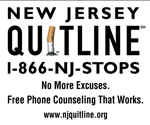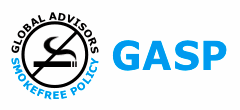A Tobacco Control Policy & Legal Resource Center
Supporting Smokefree Air & Tobacco-Free Lives
Tobacco Cessation Resources
On August 15, 2012, The U.S. Department of Health & Human Services (HHS) issued Ending the Tobacco Epidemic: Progress Toward a Healthier Nation, a progress report on HHS’s November 2010 strategic action plan entitled Ending the Tobacco Epidemic: A Tobacco Control Strategic Action Plan. HHS’ 2010 plan outlines actions that serve as a roadmap to achieve the Healthy People objective of reducing the U.S. adult smoking rate to 12 percent by 2020. HHS’ August 2012 progress report provides details about achieving measurable success in transforming goals into action, for all four major action areas: Leading by example; Improving the public’s health; Engaging the public; and Advancing knowledge; The progress report includes a summary of recent federal legislation on tobacco control. Read more about HHS’ plan and progress report on their website.
Below are resources to help quit tobacco: state and federally funded programs at no or low cost, and privately funded NJ-based smoking cessation centers at no, low and/or regular cost.
Information on free or low-cost lung CAT scan screenings for nonsmokers exposed to secondhand smoke, and for smokers, is available at our Lung Screening Programs webpage.
- If you are over age 40, never smoked [meaning you have smoked fewer than 100 cigarettes in your entire life] and you have had significant exposure to secondhand smoke, you may be eligible for a free lung cancer CT scan as a participant in a study funded by FAMRI, the Flight Attendant Medical Research Institute. Go to the FAMRI I-ELCAP website to learn more about participation and screening locations.
- If you are over age 50 and a current smoker or a former smoker, you may be eligible for the free noninvasive CT scan of the chest as a participant in a study funded by the American Legacy Foundation called the Legacy Lung Screening and Smoking Cessation Project. Go to the Legacy I-ELCAP website learn more about participation and screening locations.
New Jersey State Funded Cessation Services:

- NJ Quitline is (866) NJ-STOPS / (866) 657-8677
The New Jersey Quitline, a FREE, confidential, multilingual telephone based counseling and referral service to help state residents quit smoking, funded by the NJ Department of Health’s Office of Tobacco Control, is presently offering FREE Nicotine Patches to those individuals who register and enroll in the program. The patches are available on a limited basis. When smokers call NJ Quitline, specially trained Quit Coaches are available to work with each client to develop an individualized treatment plan including the use of Nicotine Replacement Therapy, customized support, and follow-up. Research shows that Quitline users have about a 60% better chance of staying smoke-free than those who try to quit on their own. View information in English and Spanish about Quitline and about the FREE Nicotine Patch Program. The Quitline program was previously called the Quitnet program. We’ve kept the archived Quitnet website for historical purposes. - Mom’s Quit Connection
Mom’s Quit Connection (MCQ) is a free smoking cessation support program for pregnant women, and mothers, families and caregivers of young children who need help trying to quit.
Merle Weitz, 856-675-5322 mweitz@snjpc.org
Cathy Butler, 856-675-5289 cbutler@snjpc.org
The American Lung Association’s annual “Helping Smokers Quit: Tobacco Cessation Coverage 2012” annual report on tobacco cessation policy examines each state’s tobacco cessation coverage as well as federal coverage under the newly passed Affordable Care Act. In the 2011 annual report, New Jersey was listed as one of five states as the LEAST SUPPORTIVE for quitting tobacco. In conjunction with this report, ALA has made available a toolkit on the Affordable Care Act and Tobacco Control, which contains factsheets, template letters, and other helpful tools. For 2012, New Jersey became one of 9 states that require tobacco cessation coverage by private insurers. As well, the state employee plan stopped excluding over-the-counter tobacco cessation medications, adding coverage for the nicotine patch, gum and lozenges. Unfortunately for low-income people enrolled in Medicaid, they have very limited tobacco cessation coverage. This low-income population smokes at a much higher rate than the general population (33.3 percent versus 21.3 percent for ages 18–65), and they are less able to pay out of pocket for tobacco cessation treatments.
Privately Funded Cessation Services Available in NJ:
- Atlantic Health
- Two smoking cessation programs are offered: (1) for the general public, and (2) for patients of the Atlantic Health’s Carol G. Simon Cancer Center, and their family members. Contact Lisa Picciuti, LCSW, CTTS (Oncology Social Worker at Morristown Medical Center) at 973-971-7971 or lisa.picciuti@atlantichealth.org.
- Hypnosis classes to help quit smoking are offered to the general public. Call 800-247-9580 or go to their website, then from the “Name” drop-down menu, select “Hypnosis for Smoking Cessation”, then click “search”. Classes alternate between Morristown Memorial Hospital, 100 Madison Avenue, Morristown, NJ, and Overlook Hospital in Summit, NJ.
- Atlantic Health offers low-cost CT scans to help detect lung cancer. Open to persons age 45+ who are smokers or have had significant exposure to secondhand smoke. Read the press release. Contact Lisa Picciuti LCSW, CTTS (Oncology Social Worker at Morristown Medical Center) at 973-971-7971 or lisa.picciuti@atlantichealth.org.
- American Lung Association
Quit services offered by the American Lung Assocation can be found by clicking on the above link or by calling 800-586-4872. - HiTOPS, Inc
iQuit! Program for 13 to 27 year olds through counseling and possible Nicotine Replacement Therapy.
Ivy Pearlstein 609-683-5155 x212 ivy@hitops.org - Barnabas Health
Parts of Bergen, Essex Hudson and Passaic Counties:
Fran Monteleone, 973-450-2997, fmonteleone@barnabashealth.org
Parts of West Essex, Morris, Somerset and Union Counties:
Roland Romano, 973-322-5767, rromano@barnabashealth.org - Shore Memorial Hospital (Atlantic County)
609-653-3440, quitcenter@shorememorial.org
NOTE: This program is very affordable and open to anyone. - Robert Wood Johnson University Hospital Somerset
Tobacco Dependency Treatment Program at the Tobacco Quitcenter (Somerset)
Call for fee schedule: Dr. Chris Kotsen, 908-685-2442, Chris.Kotsen@rwjuh.edu
Located at Steeplechase Cancer Center, 30 Rehill Avenue Suite 2200, Somerville, NJ 08876, (908)685-2902
Also low-cost CT-scans ($99) for smokers/former smokers age 55+. Call the Lung Cancer Screening Center at (908) 927-8778 for details. - Tobacco Dependence Program, Rutgers’ School of Public Health,
Dr. Michael Steinberg, 732-235-8222 steinbmb@rwjms.rutgers.edu
NOTE: This program services the community and Rutgers oncology patients. Learn about becoming a certified tobacco treatment specialist through the UMDNJ School of Public Health Tobacco Training Program. - Valley Health System
Tobacco Education and Treatment Program
Low-Cost Program: Initial assessment and 6 week group session (can attend less than 6 sessions)
General Inquiries: 201-447-8612, webinfo@valleyhealth.com
Nurse Practitioner: Jaclyn Chomsky, 201-447-8673 jchomsk@valleyhealth.com
Federal Smoking Cessation Websites
- In March 2015, the CDC launched the “Tips from Former Smokers” Campaign to help people quit tobacco: read about this Tips program , press releases on CDC’s tips program, and resource tools for the CDC Tips Program.
- Read a January 25, 2013 blog post by Dr. Howard Koh, the Assistant Secretary for Health entitled “Help From the Affordable Care Act to Quit Smoking and Live Longer.” The blog post includes a link to an audio podcast, “Be Tobacco Free”.
- On November 15, 2012, the U.S. Department of Health and Human Services (HHS) announced the launch of BeTobaccoFree.gov, a comprehensive Web site providing one-stop access to the best and most up-to-date tobacco-related information from across its agencies (CDC/OSH, FDA, NIH/NCI, the Office of the Assistant Secretary, and the Office of the Surgeon General). This consolidated resource includes general information on tobacco as well as federal and state laws and policies, health statistics, and evidence-based methods on how to quit. The Web site’s unique social media dashboard, “Say it – share it,” constantly provides real-time updates from HHS tobacco-related social media accounts, including Facebook, Twitter, YouTube, Tumblr, infographics, and podcasts.
- For 2012, the CDC has launched a media campaign with smoker’s real stories to educate people about the damaging effects of smoking and to encourage people to quit or not start using tobacco products. Visit their site for tips on quitting and for more information about the Tobacco Education Campaign. CDC also offers the following sites to help smokers who want to quit: Toll-free quitline 1-800-QUIT-NOW.
- Smokefree.gov was created by the Tobacco Control Research Branch of the National Cancer Institute and is a collaborative site with other institutions. The site provides a step-by-step quit guide, tools for quitting, information on quitting and the ability to speak to a counselor.
- Teen quitting site: teen.smokefree.gov
- Teen texting program: smokefree.gov/smokefreetxt/
- General quitting site: smokefree.gov
- Quitting site for women: women.smokefree.gov/
- Spanish-language quitting site: http://espanol.smokefree.gov/
- Resolve to be Tobacco Free in 2012. This webpage lists government resources to help people quit tobacco, including a website to help teens quit tobacco.
- Surgeongeneral.gov/tobacco has the latest information on how to quit from the Surgeon General’s website which includes new, effective clinical treatments for tobacco dependence and the latest information to help people quit smoking.
- Quit Tobacco was created by the US Department of Defense and is focused on helping US military personnel.
Self magazine’s November 2010 issue shares strategies on how to quit smoking, including a quit smoking contract to print, sign and share. Click here for the contract.
CVS Health has announced their own smoking cessation program at this link: http://m.cvs.com/quit-smoking/
